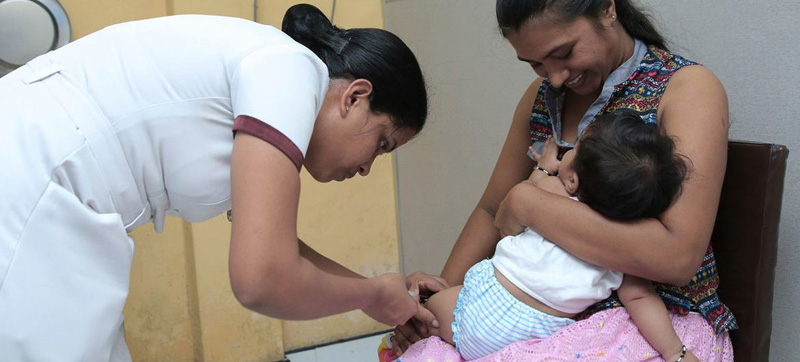 Hepatitis B
Hepatitis B
WHO report alerts Hepatitis virus killing 3500 daily
The number of lives lost due to viral hepatitis infections is increasing and already accounts for 3,500 deaths daily, according to a report by the World Health Organization (WHO) released on Tuesday.
The disease is the second leading infectious cause of death globally, with 1.3 million deaths per year, the same as tuberculosis, another top infectious killer, according to the World Health Organization (WHO) 2024 Global Hepatitis Report.
“This report paints a troubling picture,” said WHO Director-General Tedros Adhanom Ghebreyesus. “Despite progress globally in preventing hepatitis infections, deaths are rising because far too few people with hepatitis are being diagnosed and treated.”
Swift course correction
Even though better tools for diagnosis and treatment are available and product prices are decreasing, testing and treatment coverage rates have stalled, the UN health agency stated in the report, released at the World Hepatitis Summit.
But, reaching the WHO elimination goal by 2030 should still be achievable, if swift action is taken now, the agency said.
“WHO is committed to supporting countries to use all the tools at their disposal – at access prices – to save lives and turn this trend around,” the UN health agency chief said.
Spike in deaths
More than 6,000 people are getting newly infected with viral hepatitis each day, according to the report.
New data from 187 countries show that the estimated number of deaths from viral hepatitis increased from 1.1 million in 2019 to 1.3 million in 2022. Of these, 83 per cent were caused by hepatitis B and 17 per cent by hepatitis C.
Updated WHO estimates indicate that 254 million people live with hepatitis B and 50 million with hepatitis C in 2022. Half the burden of chronic hepatitis B and C infections is among people 30 and 54 years old, with 12 per cent among children. Men account for 58 per cent of all cases.
Gaps in diagnosis and treatment
Across all regions, only 13 per cent of people living with chronic hepatitis B infection had been diagnosed and approximately three per cent, or seven million, had received antiviral therapy at the end of 2022, falling far below global targets to treat 80 per cent of people living with chronic hepatitis B and hepatitis C by 2030.
The burden of viral hepatitis also varies regionally. The WHO African Region bears 63 per cent of new hepatitis B infections, yet despite this burden, only 18 per cent of newborns in the region receive the hepatitis B birth-dose vaccination.
In the western Pacific region, which accounts for 47 per cent of hepatitis B deaths, treatment coverage stands at 23 per cent among people diagnosed, which is far too low to reduce mortality.
In addition, despite the availability of affordable generic viral hepatitis medicines, many countries fail to procure them at these lower prices.
Eradicating the epidemic
The WHO report outlines a series of actions to advance a public health approach to viral hepatitis, designed to accelerate progress towards ending the epidemic by 2030.
They include expanding access to testing and diagnostics, strengthening primary care prevention efforts and shifting from policies to implementation for equitable treatment.
But funding remains a challenge, the agency said, with current levels insufficient to meet the needs.
WHO said this arises from a combination of factors, including limited awareness of cost-saving interventions and tools and competing health priorities.
The new report also highlights strategies for countries to address these inequities and access the tools at the most affordable prices available.
Support Our Journalism
We cannot do without you.. your contribution supports unbiased journalism
IBNS is not driven by any ism- not wokeism, not racism, not skewed secularism, not hyper right-wing or left liberal ideals, nor by any hardline religious beliefs or hyper nationalism. We want to serve you good old objective news, as they are. We do not judge or preach. We let people decide for themselves. We only try to present factual and well-sourced news.







